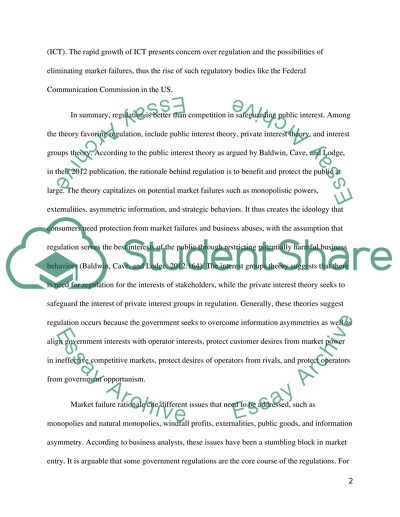Cite this document
(Whether Regulations Are Necessary Essay Example | Topics and Well Written Essays - 1750 words, n.d.)
Whether Regulations Are Necessary Essay Example | Topics and Well Written Essays - 1750 words. https://studentshare.org/law/1589847-is-regulation-really-necessary-or-can-all-the-benefits-claimed-for-it-be-achieved-through-the-promotion-of-competition-alone
Whether Regulations Are Necessary Essay Example | Topics and Well Written Essays - 1750 words. https://studentshare.org/law/1589847-is-regulation-really-necessary-or-can-all-the-benefits-claimed-for-it-be-achieved-through-the-promotion-of-competition-alone
(Whether Regulations Are Necessary Essay Example | Topics and Well Written Essays - 1750 Words)
Whether Regulations Are Necessary Essay Example | Topics and Well Written Essays - 1750 Words. https://studentshare.org/law/1589847-is-regulation-really-necessary-or-can-all-the-benefits-claimed-for-it-be-achieved-through-the-promotion-of-competition-alone.
Whether Regulations Are Necessary Essay Example | Topics and Well Written Essays - 1750 Words. https://studentshare.org/law/1589847-is-regulation-really-necessary-or-can-all-the-benefits-claimed-for-it-be-achieved-through-the-promotion-of-competition-alone.
“Whether Regulations Are Necessary Essay Example | Topics and Well Written Essays - 1750 Words”. https://studentshare.org/law/1589847-is-regulation-really-necessary-or-can-all-the-benefits-claimed-for-it-be-achieved-through-the-promotion-of-competition-alone.


